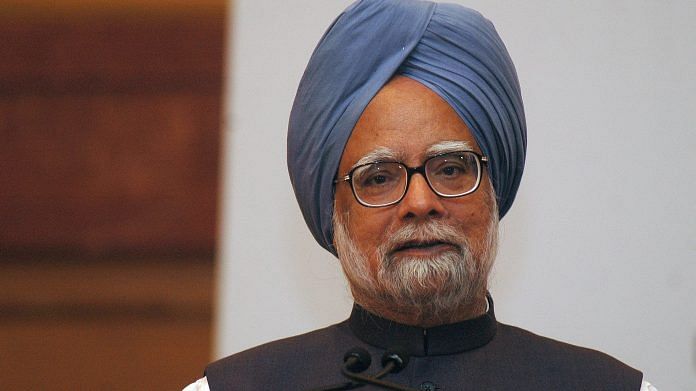New Delhi: Veteran Congress leader and renowned economist Manmohan Singh, who turned 87 Thursday, served as India’s Prime Minister for 10 years between 2004 and 2014.
But long before he took over the reins of the country, he cemented his place in India’s history by putting it on track for big-ticket reforms with the liberalisation roadmap he laid out in 1991, through the Union Budget as well as the industrial policy released in the days before.
The reforms came as India was grappling with one of its darkest economic chapters ever.
There was a surge in unemployment and double-digit inflation with public debt at 55 per cent of GDP. Also, India’s foreign exchange reserves had dipped to a point where it could only support imports for another two weeks.
Weighing in on the crisis in his budget speech, Singh said, “We have been on the edge of a precipice since December 1990…”
Here are some other highlights from that milestone Budget speech made by Dr Singh.
End of ‘Licence Raj’ and other restrictions
In the pre-1991 days, business in India was marked by a series of regulations and licences — aka ‘Licence Raj’ — that were seen as barriers to new players, including foreign ones.
Doing away with this, Singh said in his speech that it was “essential to increase the degree of competition between firms in the domestic market so that there are adequate incentives for raising productivity, improving efficiency and reducing costs”.
“Henceforth, we have announced important changes in industrial policy which will bring significant measure of deregulation in the domestic sector,” he added.
He also called for the Indian industry to be exposed to “competition from abroad in a phased manner”.
“As a first step in this direction, the government has introduced changes in import-export policy, aimed at a reduction of import licensing, vigorous export promotion and optimal import compression,” he said.
Empowering SEBI
Singh called for the transfer of complete statutory powers to the Securities and Exchange Board of India (SEBI) for regulating the affairs of the stock exchanges, and protecting the rights of investors and preventing trading malpractices.
Disinvestment of PSUs
Singh declared that 20 per cent of government stakes in selected public sector undertakings (PSUs) will be offered to mutual funds and investment institutions under the public sector. “[This] is expected to yield Rs 2500 crores to the exchequer during the current financial year. This disinvestment would broad-base the equity, improve the management and enhance the availability of resources in these enterprises,” he said.
He added that “public enterprises which are chronically sick would be referred to the Board for Industrial and Financial Reconstruction (BIFR) for revival or rehabilitation schemes”. He said a social security mechanism will be created to fully protect the interests of the workers likely to be affected by the BIFR’s rehabilitation packages.
Making India a software export giant
Singh noted the “considerable progress” made by India’s software industry “in recent years” and noted its “vast unexploited potential for growth”. To encourage its exports, Singh extended a tax concession offered under Section 80HHC of the Income Tax Act — which allows assessees to deduct a part of profits from their income while deriving the taxable sum. “With this concession, the exports of this industry should register rapid growth,” he added.
This concession was also extended to the export of processed minerals.
Also read: In images — Manmohan Singh, India’s PM who held office twice without contesting an election




The overall health of a nation’s economy relies on a well-balanced import and export setup rather than just the level of exports. Ensuring a proper balance between the imports and exports is essential to enhance its economic strength and provide for a sustainable trade surplus or deficit. If you are a trader and looking for enough information about the trading industry and especially about the competitors you have in the market it is must for you to invest tome for analyzing imports and exports database. Seek the assistance of the professionals firms which are available in the market and can provide you genuine data.
Ending license Raj – yes, ; transferring statuary powers to SEBI – no immediate impact but long terms probably yes; Disinvestment a complete failure; making India into a Software Giant – he played a very limited role. It was the oncoming Y2K which thrust India into the forward spot.
Hence the above article has a very limited appeal…..
His ten years rule of UPA I & I has caused massive NPA to nationalized banks because too many persons and institution were given loans without proper checking and rules of landing. Do you still think he is best economist or administrator? Most poor are suffering due to his policies as PM and allowing loot.
The man who deserves credit is India’s greatest Prime Minister P.V. Narasimha Rao. MMS only followed his boss’s orders. Just as he followed his boss’s orders as India’s only unelected PM, and reverted back to’socialist’ policies.